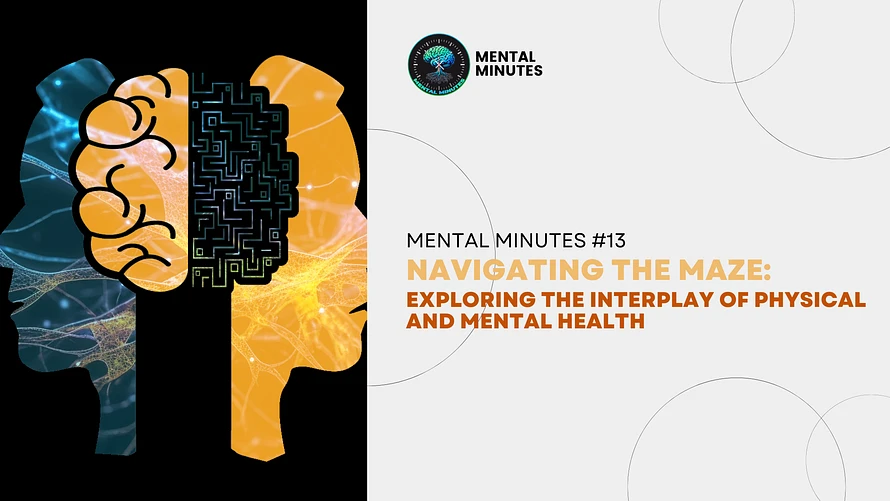Navigating the Maze: Exploring the Interplay of Physical and Mental Health
Picture this: you wake up to the sun's first rays streaming through your window. A new day awaits, but your body feels like it's carrying an invisible weight, and your mind echoes with relentless worries. This scenario is not uncommon. In fact, according to the World Health Organization, over 450 million people worldwide suffer from mental health disorders, with depression alone affecting more than 264 million individuals.
But the story doesn't end there. Our physical and mental well-being are intertwined in ways we're only beginning to understand. Take, for instance, the alarming rise in chronic illnesses like diabetes, heart disease, and obesity. These conditions not only impact the body but cast a shadow on mental health as well. Research from the American Diabetes Association reveals that individuals with diabetes are twice as likely to experience depression compared to those without the condition.
Yet, amidst these sobering statistics, there's a glimmer of hope—a recognition that addressing one aspect of health can yield positive effects on the other. Let me share a story that illustrates this connection vividly.
Meet Sarah. At 35, she found herself caught in a whirlwind of stress from her demanding job and the pressure to maintain a healthy lifestyle. Her evenings were consumed by fatigue, her weekends a blur of lethargy. A routine visit to her doctor revealed high blood pressure and elevated cholesterol levels. Fearing the worst, Sarah embarked on a journey to reclaim her health.
But it wasn't just about counting calories or hitting the gym. Sarah soon realized that nurturing her mental well-being was equally crucial. With the guidance of a therapist, she learned coping strategies to manage stress and reframe her thoughts. As her mental resilience grew, so did her commitment to physical health. With each healthy meal and exercise session, she felt a surge of empowerment—a testament to the profound link between mind and body.
Sarah's story is not an isolated one. Research from Harvard Health Publishing underscores the reciprocal relationship between physical activity and mental health. Exercise, it turns out, stimulates the production of endorphins, those feel-good chemicals that act as natural mood lifters. Furthermore, regular physical activity can alleviate symptoms of anxiety and depression, offering a ray of hope to those navigating the complexities of mental illness.
However, our journey doesn't end here. Despite the progress made in understanding the interconnectedness of physical and mental health, significant barriers persist. Stigma surrounding mental illness often deters individuals from seeking help, while disparities in healthcare access exacerbate existing inequalities. Addressing these challenges requires a collective effort—a recognition that true health encompasses both body and mind.
As we conclude our exploration today, let us remember that the path to well-being is not always straightforward. It's a maze, filled with twists and turns, but also moments of clarity and resilience. Together, let's navigate this maze with empathy, understanding, and a commitment to holistic health.
